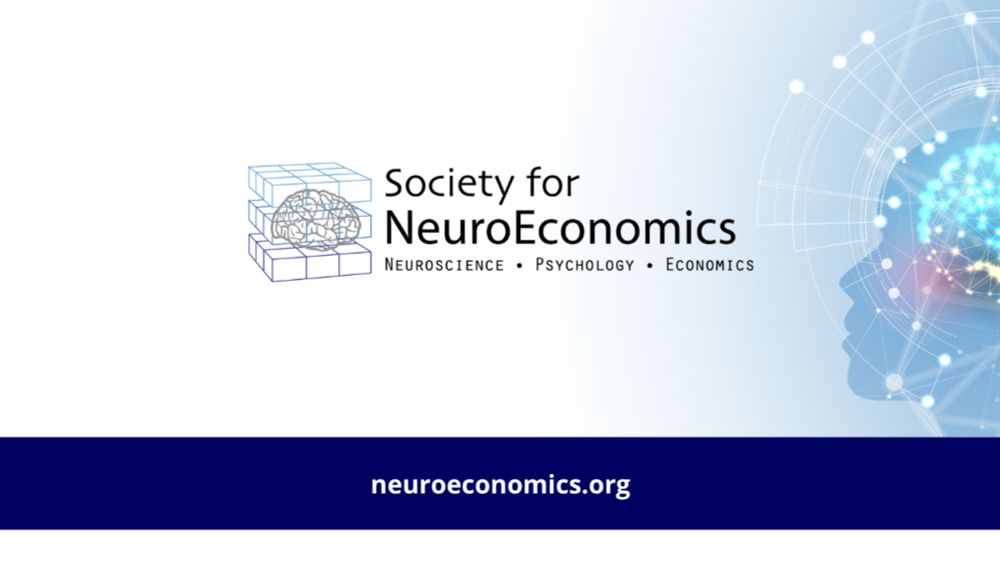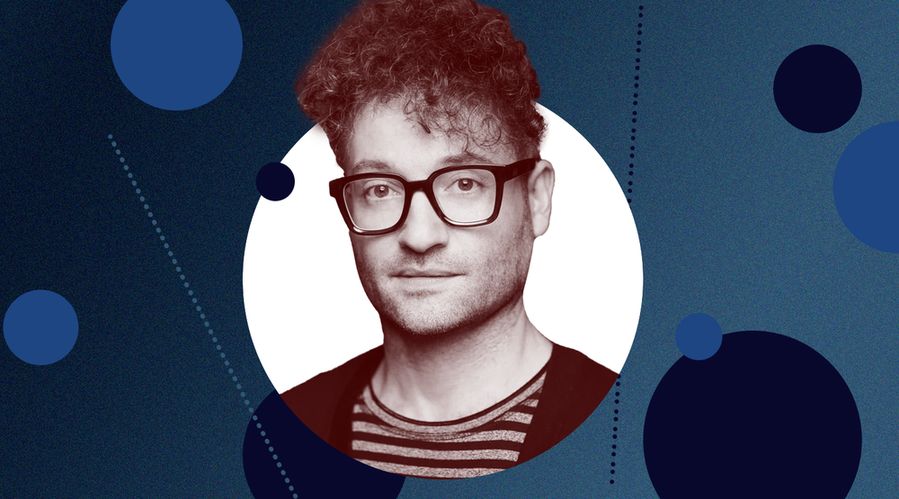
“Asking ‘will AI replace the artist’ is the same as asking ‘will the camera replace the artist’”, argues @aleximas.bsky.social in the latest instalment of his excellent series of essays on the societal impact of AI.
And the answer is No—quite the contrary:
buff.ly/4pJiZ71
11.02.2026 18:19 —
👍 5
🔁 3
💬 0
📌 0

Someday we will all be artists
How AI will change the nature of work and art
New post: "Someday We Will All Be Artists"
How will AI impact art? Will artists be replaced? No. Art will change, but art makers will be most "automation proof" jobs out there. In fact, many jobs will take on characteristics that we associate with artists.
aleximas.substack.com/p/someday-we...
09.02.2026 14:24 —
👍 7
🔁 0
💬 0
📌 1

Some (late) predictions for 2026
Outlining how I plan to spend my year.
I wrote up some (late) predictions for 2026, mostly as a way to guide my own thinking and priorities.
Overall: 2026 is the year we will finally see real visible societal changes in response to AI. Discuss 3 reasons: agents, recursive science, continual learning.
open.substack.com/pub/aleximas...
01.02.2026 18:58 —
👍 2
🔁 0
💬 0
📌 1
Thank you Marciano!
30.01.2026 12:56 —
👍 1
🔁 0
💬 0
📌 0
Yes that’s a great example.
30.01.2026 12:55 —
👍 1
🔁 0
💬 0
📌 0
Thank you Tim!
30.01.2026 00:04 —
👍 2
🔁 0
💬 0
📌 0

Ghosts of Electricity | Alex Imas | Substack
Essays on the economics of AI and technological change. Click to read Ghosts of Electricity, by Alex Imas, a Substack publication with thousands of subscribers.
Importantly, this is a living post. I will update it continuously as new data comes in. If you see something I'm missing, please let me know and I will add it.
For regular updates, please consider subscribing to the substack. Here is the link: aleximas.substack.com
29.01.2026 19:31 —
👍 3
🔁 0
💬 1
📌 0
There is also a disconnect on who benefits most: micro (mostly) finds low-skill/less-experienced workers see higher returns, the (limited) macro evidence is more mixed but leans toward higher wage/higher ed people seeing more of the benefits. 2/n
29.01.2026 19:31 —
👍 0
🔁 0
💬 1
📌 0

What is the impact of AI on productivity?
Reconciling the micro and the macro evidence
New post: What is the impact of AI on productivity?
I review all of the studies and data that I can find and try to provide a synthesis.
A disagreement emerges: micro studies find positive benefits but these benefits are yet to show up in the macro data.
aleximas.substack.com/p/what-is-th... 🧵
29.01.2026 19:31 —
👍 29
🔁 8
💬 4
📌 1

Does this reflect "discrimination"? We can't test this directly. But we think it's likely that there is systemic discrimination by socioeconomic background in academia
(Following the very useful framework by Bohren, @instrumenthull.bsky.social @aleximas.bsky.social
(20/22)
27.01.2026 22:34 —
👍 3
🔁 2
💬 2
📌 0
GPT-5.2 Pro is good enough to check reproducibility & robustness of academic papers across many fields (given the data, can you get the same results? are the statistics brittle?). I wouldn't trust it to automate decisions, but to flag them.
It can't do an independent replication with new data, yet.
22.01.2026 22:07 —
👍 55
🔁 5
💬 0
📌 1
Thanks Hernan!
22.01.2026 12:55 —
👍 1
🔁 0
💬 0
📌 0

Why Can’t Your AI Agent Book a Flight?
The need for a parallel internet and legal clarity for agentic interactions
4. Why can’t your AI agents book your flight? The need for a parallel internet and legal clarity for agentic interactions.
open.substack.com/pub/aleximas...
22.01.2026 04:49 —
👍 1
🔁 0
💬 1
📌 0

Can a Transformer “Learn” Economic Relationships?
Revisiting the Lucas Critique in the age of Transformers.
2. Can a Transformer “Learn” Economic Relationships?
Revisiting the Lucas Critique in the age of Transformers.
open.substack.com/pub/aleximas...
22.01.2026 04:49 —
👍 1
🔁 0
💬 1
📌 0

Will money still exist in the agentic economy?
Yes
1. Will money exist in the agentic economy?
Yes.
open.substack.com/pub/aleximas...
22.01.2026 04:49 —
👍 1
🔁 0
💬 1
📌 0

Ghosts of Electricity | Alex Imas | Substack
Essays on the economics of AI and technological change. Click to read Ghosts of Electricity, by Alex Imas, a Substack publication with thousands of subscribers.
Some news: I’ve started a Substack, largely focused on AI, tech, and economics more broadly.
I've always loved the essay format. It helps me explore ideas more formally w/o the 5 year publishing gauntlet.
Consider subscribing:
open.substack.com/pub/aleximas...
Links to all posts below:
22.01.2026 04:41 —
👍 18
🔁 5
💬 2
📌 0

Can advanced AI lead to negative economic growth?
Considering the role of demand in the economics of AI
have only read the first 1/4, but this by @aleximas.bsky.social looks very interesting on the range of conditions under which unemployment due to automation would lead to demand collapse
07.01.2026 22:03 —
👍 4
🔁 1
💬 1
📌 0

Thoughtful thread by @aleximas.bsky.social on the potential of AI-driven automation for disrupting the labour market, and how to anticipate it:
buff.ly/PWYhkap
03.12.2025 18:19 —
👍 5
🔁 1
💬 0
📌 0

Social Dynamics of AI Adoption
Founded in 1920, the NBER is a private, non-profit, non-partisan organization dedicated to conducting economic research and to disseminating research findings among academics, public policy makers, an...
I think spot on and applies elsewhere; in volume-driven/time-constrained areas the competitive advantage of AI can make it an strategic necessity even if the new equilibrium is worse for everybody.1/
by Leonardo Bursztyn, @aleximas.bsky.social @rafaeljjd.bsky.social Aaron Leonard & Christopher Roth
18.11.2025 00:30 —
👍 4
🔁 3
💬 1
📌 0
YouTube video by Behavior Change For Good Initiative
The Anomalies That Changed Economics | Richard Thaler and Alex Imas
I'm excited to share access to a video of the conversation @angeladuckworth.bsky.social & I hosted at Wharton w/ our brilliant friends @rthaler.bsky.social & @aleximas.bsky.social about their new book THE WINNER'S CURSE & how behavioral econ has evolved in the last 30 years. youtu.be/hH8UgQb-x4A?...
18.11.2025 14:58 —
👍 16
🔁 5
💬 0
📌 0

it was so much fun to host @rthaler.bsky.social and @aleximas.bsky.social @upenn.edu for a conversation about The Winner’s Curse and the evolution of behavioral economics.
missed it? check out the recording on the @bcfginitiative.bsky.social youtube channel!
youtu.be/hH8UgQb-x4A
18.11.2025 15:24 —
👍 6
🔁 1
💬 0
📌 0

Happy pub day to THE WINNER'S CURSE by @rthaler.bsky.social + @aleximas.bsky.social!
The original (1992) version of this book changed my life -- it's the reason I study judgment and decision making. For a preview of the new edition, check out my Q&A w/ the authors t.co/n3ThOxpJak
21.10.2025 17:29 —
👍 12
🔁 1
💬 1
📌 0
YouTube video by Markus' Academy
Alex Imas and Richard Thaler on Behavioral Economics Anomalies: Then and Now
Next was a great discussion with @aleximas.bsky.social and Richard Thaler on changing perspectives around behavioral economics anomalies at the Julis-Rabinowitz Center for Public Policy & Finance www.youtube.com/watch?v=7v8O... (6/7)
10.10.2025 02:53 —
👍 2
🔁 1
💬 1
📌 0

Workshops - Society For Neuroeconomics
ONE WEEK! The Society for Neuroecon conference is in Cambridge, MA in 1 week!
We are thrilled to have @amberalhadeff.bsky.social and @aleximas.bsky.social as the speakers for our neuroscience and social/decision science workshops
neuroeconomics.org/workshops/
26.09.2025 04:09 —
👍 8
🔁 1
💬 0
📌 1

‼️Event Alert‼️ Join @angeladuckworth.bsky.social & @katymilkman.bsky.social for a conversation with Nobel Prize winning economist @rthaler.bsky.social and Professor @aleximas.bsky.social about their new book, The Winner’s Curse.
📅 Thurs, Oct 23 | 4-5PM
📍 Huntsman Hall G06
📩RSVP: bit.ly/4nbI9EG
29.09.2025 13:44 —
👍 13
🔁 4
💬 0
📌 0




























